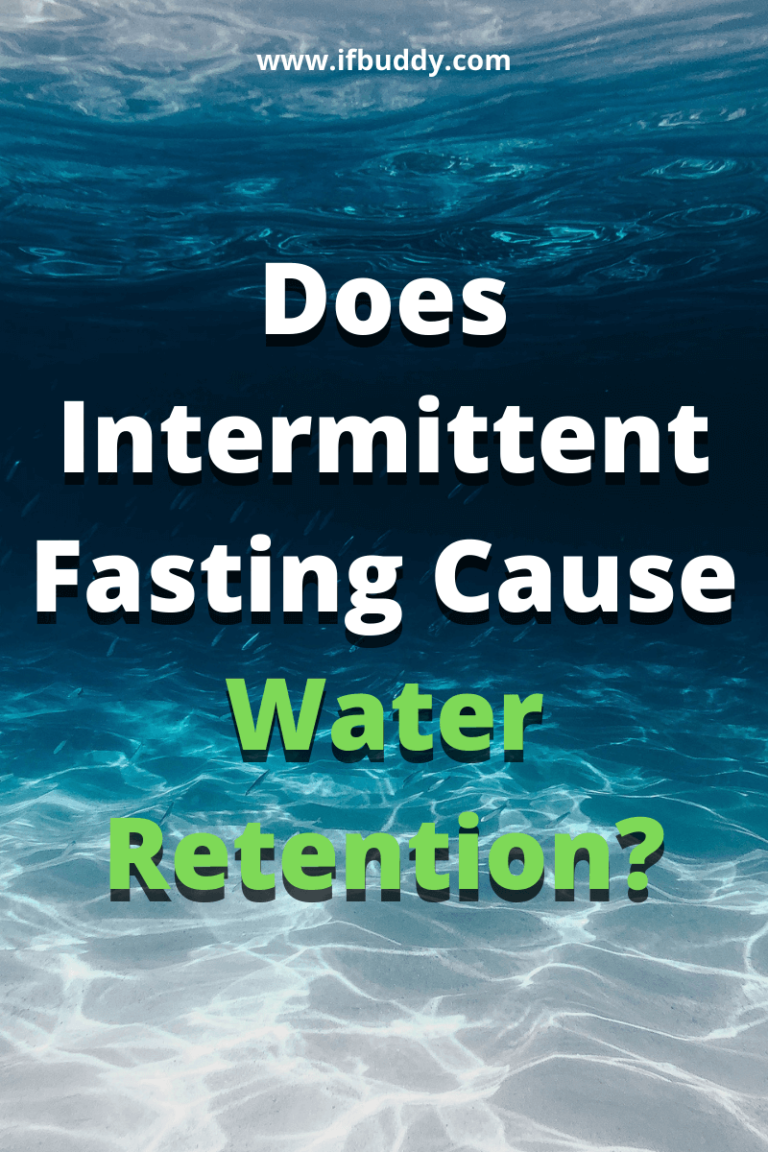One of the most popular benefits of intermittent fasting is weight loss. But what if, instead of losing weight, you find you’re retaining water? Does intermittent fasting cause water retention?
There are no medical studies to show it does. However, we know bloating is a common side effect and it can sometimes be accompanied by water retention. More often than not though, water retention is caused by something else, such as eating the wrong foods, not drinking enough water, hormonal changes, and more.
So let’s take a closer look at what is water retention, what causes it, and how to deal with it while you’re intermittent fasting.
What is water retention?
Your body is mostly water. Your organs, blood vessels, tissues, all contain water and need enough water to function. Usually, the body is very good at maintaining a good fluid balance. However, sometimes, this balance gets thrown off and you end up retaining water.
Common symptoms of water retention include:
- bloating especially in the abdominal area,
- puffiness in the face, hips, or abdomen,
- swelling, especially in the feet and ankles,
- stiff joints,
- frequent weight fluctuations.
A lot of things can cause water retention. To name a few:
- hormonal changes,
- diet, especially one heavy in sodium,
- flying in an airplane,
- certain medications, including over-the-counter pain killers,
- pregnancy,
- sitting or standing for too long,
- deep vein thrombosis.
Some people may experience some water retention after starting a new workout routine. The muscle breakdown and slight inflammation can cause this issue, especially if you don’t hydrate properly and don’t take time to rest. With proper diet and lifestyle, the problem should subside in this case, unless there is another hidden cause.
Does intermittent fasting cause water retention?
As you can see in the list above, intermittent fasting in and of itself is not one of the common causes of water retention. However, the dietary and lifestyle changes that come with it, could cause you to retain water.
For instance, if you’re overeating once your fasting window is over, especially if you go for a lot of carbs and salty foods, you may be setting yourself up for disaster. You probably already heard that excess salt causes water retention, but believe it or not, the same can be said about excess carbs. Don’t give up carbs completely though! Simply make sure you do not overeat, especially after a long fast.
Drinking too much water could be another issue. If you replace water with zero-calorie beverages or diet soda, you may be increasing your chances to start retaining water.
Another way in which intermittent fasting could lead to water retention is by messing up your circadian rhythm. This isn’t a common side effect. In fact, most people say they sleep better once they start fasting. But the change in eating pattern can sometimes have a negative impact on your sleep, which in turn can lead to water retention.
How to deal with water retention when intermittent fasting?
The first thing you should do is try and identify the cause. Did this issue truly start when you began fasting? Or was it always there and maybe your new diet is slightly exacerbating things? If you identify the cause as being a more serious one, such as deep vein thrombosis, or a hormonal imbalance, you’ll need to work with a doctor to address those issues. If the cause is related to your diet, your lifestyle and is being exacerbated by intermittent fasting, there are a few things you can do to deal with water retention.
1. Exercise regularly
It is true that for some people starting a new workout routine, especially strength training one may cause water retention. This effect is only temporary and it is due to a normal inflammatory process that should subside after a few sessions.
Moderate exercise is great because it helps you sweat, prompting your body to get rid of excess toxins and excess water. Remember though, you still need to drink plenty of water. Dehydration is not a cure for water retention, quite the opposite!
This is also important if you perform small HIIT Workouts while fasting.
2. Try a sauna
An easy way to sweat is the sauna, which can be a fairly good remedy for water retention. Remember to drink plenty of water after a sauna session, even more so than after working out. Also, be sure you don’t have any health issues that might be worsened by saunas, such as hypo- or hypertension.
3. Use electrolytes
Electrolytes play a crucial role in regulating the water balance in your body. Many use them after an intense workout or after a sauna session. But you can use them if you don’t do either of those things, especially if you live in a hot and humid environment. Electrolytes are minerals, such as magnesium and potassium. Of course, too much of something can be just as bad as too little, so make sure to not go over your daily recommended values.
4. Prioritize sleep and relaxation
When talking about a healthy lifestyle we usually look at diet and exercise. But sleep is just as important, if not more important. And a lack of sleep can lead to water retention. Too little sleep is perceived as constant stress for your body, which is going to lead to more cortisol. Cortisol regulates a hormone that is responsible for the water balance in your body.
Intermittent fasting in and of itself is a form of stress for your body, especially in the first weeks, until you adjust to the new eating schedule. This can lead to an increase in cortisol. The only way to counterbalance it is by prioritizing sleep and relaxation. If on top of the natural stress on the body that comes with fasting, you add lack of sleep, the result is going to be disastrous.
The bottom line
Does intermittent fasting cause water retention? Not directly. Indirectly, however, through small mistakes, both in your diet and in your lifestyle, it can cause it. So make sure you’re eating a balanced diet, try to eliminate junk food that is loaded with carbs and sodium, stay hydrated, exercise, and rest. All this will minimize the risk of water retention or any other intermittent fasting side effects.
Here is a short video about “What causes water retention?”

